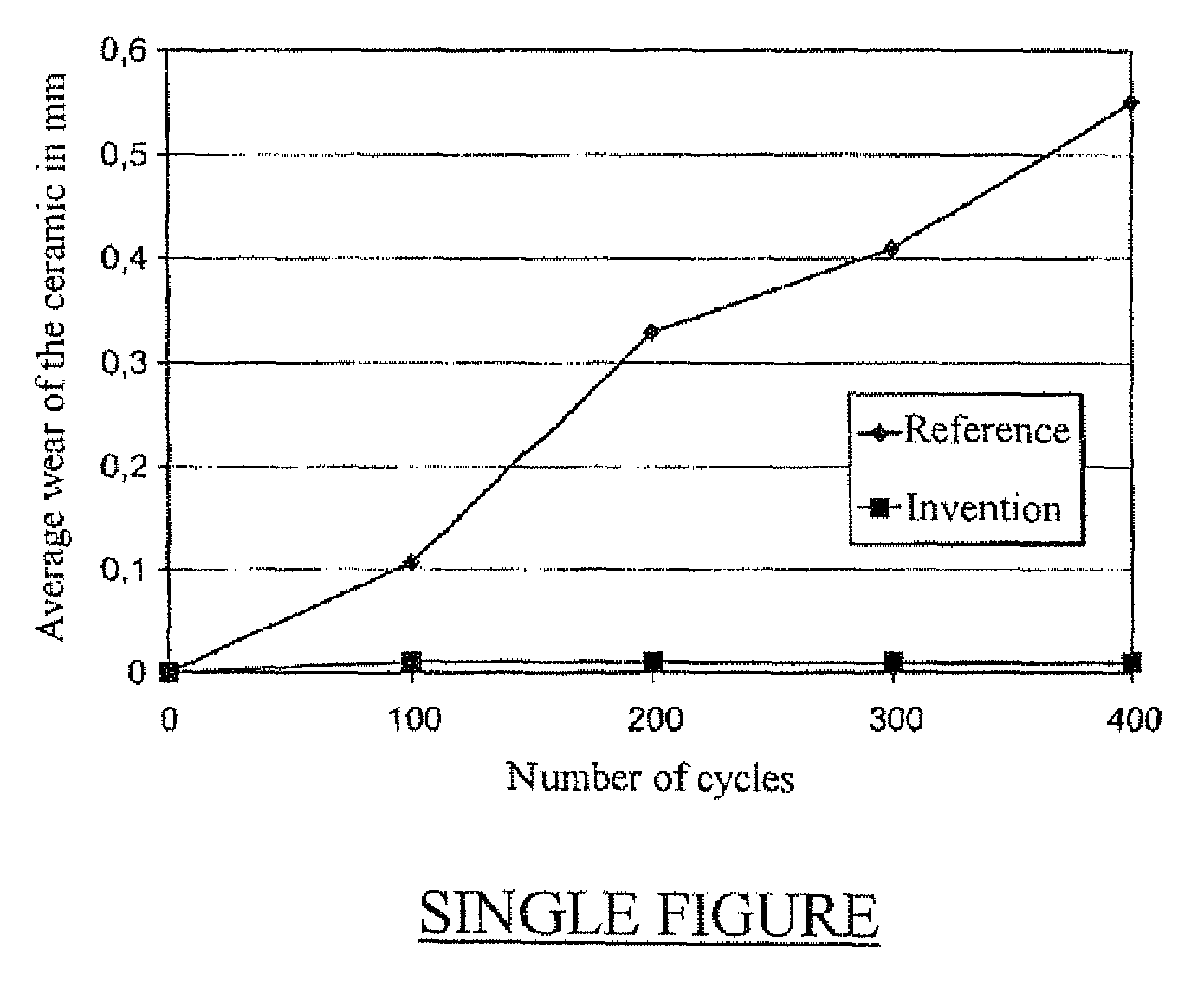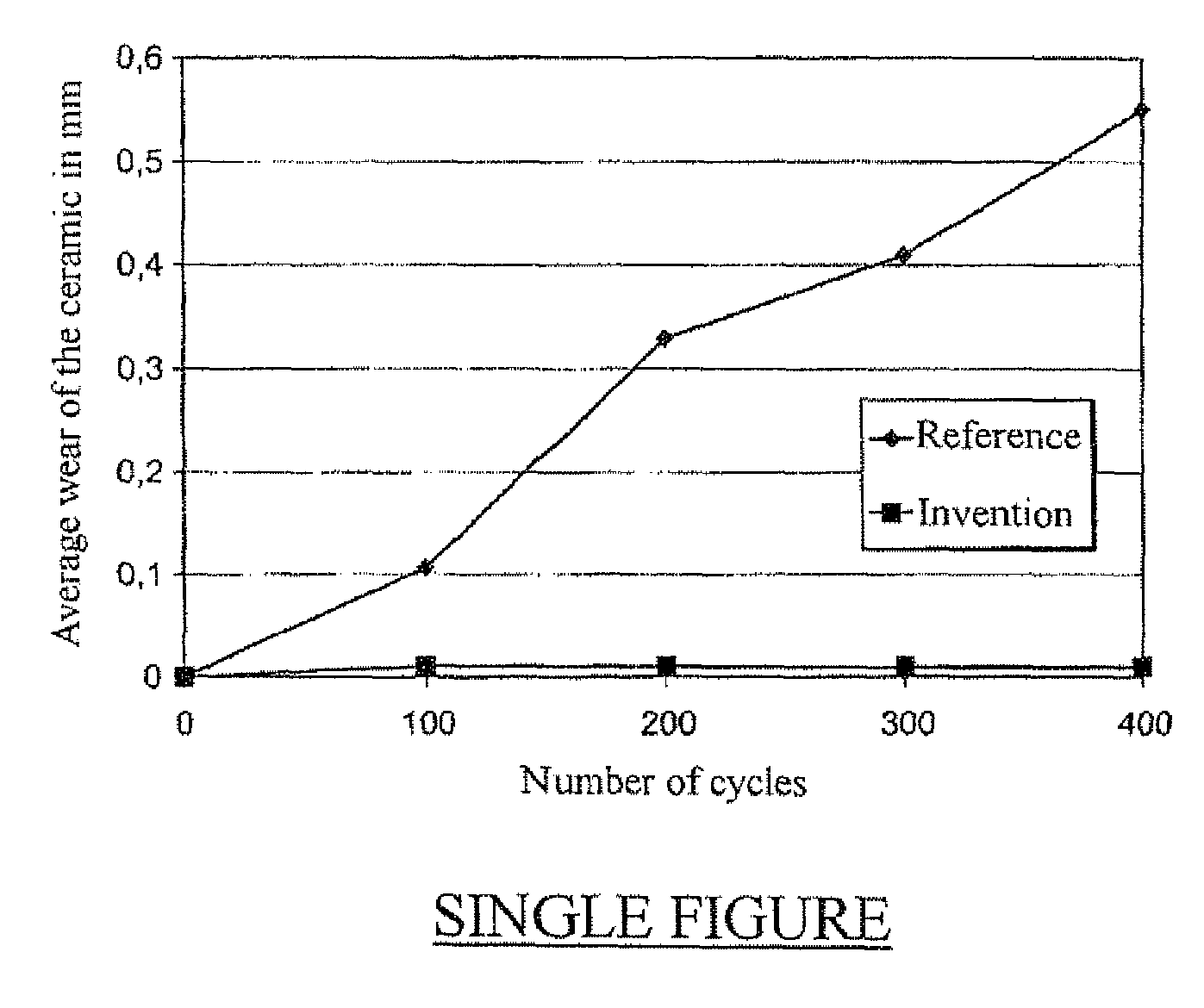Process for the preparation of a sintered ceramic spark plug
a technology of sintered ceramic and spark plugs, which is applied in the field of sintered ceramic spark plug preparation, can solve the problems of limiting the lifetime, shortening the life of the spark plug comprising these materials, and limiting the lifetim
- Summary
- Abstract
- Description
- Claims
- Application Information
AI Technical Summary
Benefits of technology
Problems solved by technology
Method used
Image
Examples
Embodiment Construction
[0036]Preferred examples of conductive phases that can be used within the scope of the invention may include SiC and MoSi2 which have excellent thermo mechanical properties. SiC has excellent resistance to oxidation, in particular at temperatures of approximately 650° C. It will be observed that MoSi2 tends to oxidize markedly between 300° C. and 700° C. to form silica and MoO3, of which the mesh volume is much higher than that of MOSi2, which in the long term results in cracking of the parts. But this phenomenon does not occur at very high temperatures (1,100° C. and above), because the protective layer of silica formed prevents the abrupt formation of MoO3.
[0037]The insulating phase comprises one or more modified silicon ox nitrides obtained during sintering from, for example, Si3N4, Y2O3 and MgO, and from free Si3N4 representing a portion of the Si3N4 initially present in the pure state in the mixture, and which has not reacted with the oxides during sintering by the GPS process....
PUM
| Property | Measurement | Unit |
|---|---|---|
| porosity | aaaaa | aaaaa |
| porosity | aaaaa | aaaaa |
| pressure | aaaaa | aaaaa |
Abstract
Description
Claims
Application Information
 Login to View More
Login to View More - R&D
- Intellectual Property
- Life Sciences
- Materials
- Tech Scout
- Unparalleled Data Quality
- Higher Quality Content
- 60% Fewer Hallucinations
Browse by: Latest US Patents, China's latest patents, Technical Efficacy Thesaurus, Application Domain, Technology Topic, Popular Technical Reports.
© 2025 PatSnap. All rights reserved.Legal|Privacy policy|Modern Slavery Act Transparency Statement|Sitemap|About US| Contact US: help@patsnap.com


